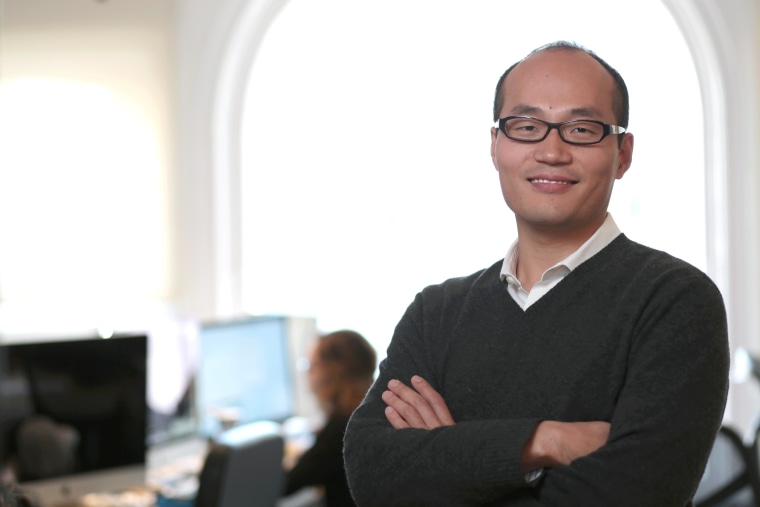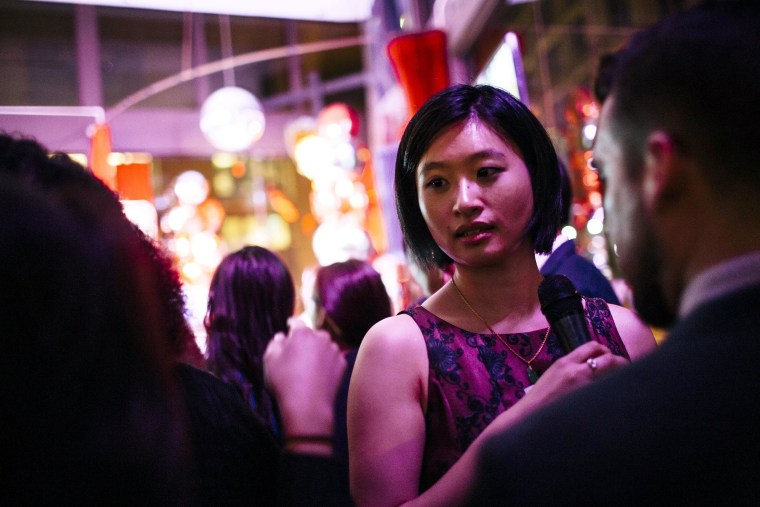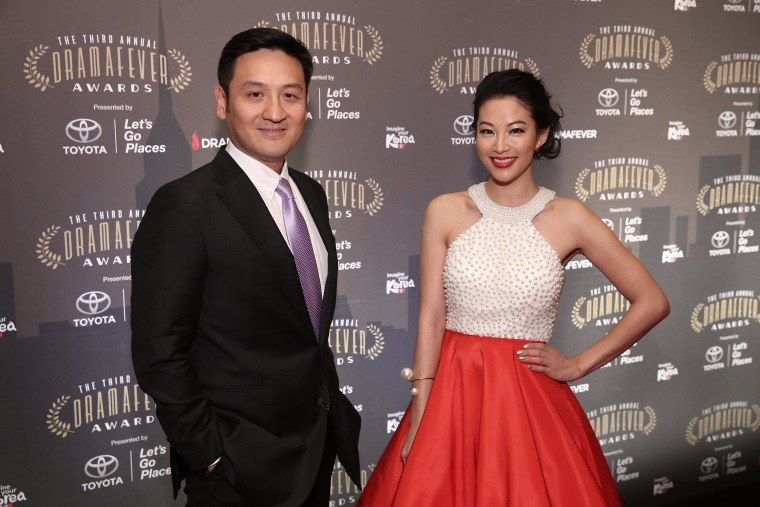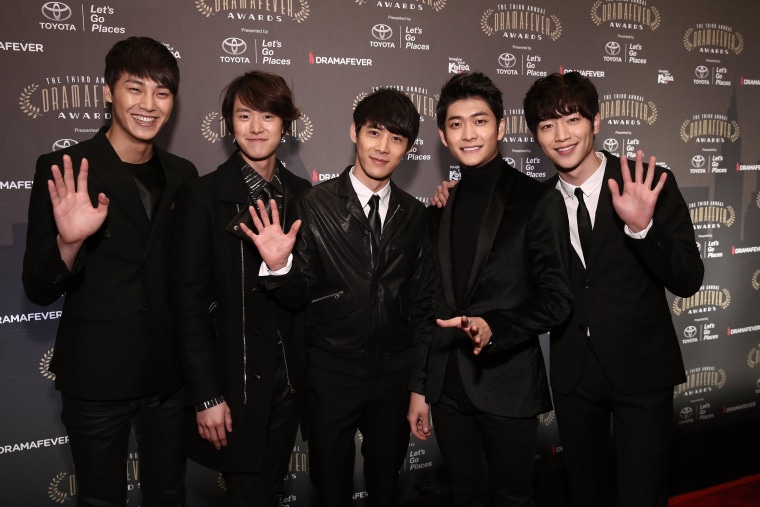In some ways, the wildly successful, multi-lingual video streaming service Seung Bak co-founded was simply a product of his own upbringing. Born and raised in Seoul, South Korea, Bak knew well the power of cross-cultural programming.
"When you live in just about any other country out there, there's a healthy amount of foreign content on your TV," said 37-year-old Bak. "I grew up watching movies from Hong Kong, random stuff from Japan. We watched Woody Woodpecker dubbed in Korean." When his family relocated to the U.S., teenage Bak had a tough time tracking down titles from back home, or anywhere else.
"You had to go get DVD's or bootleg copies," he recalled. "We thought there had to be a better way."
Fast forward two decades. The world shrinks. Screens are ubiquitous. The idea of streaming content seems commonplace. Yet still, the company Bak co-founded - DramaFever - has grown into a powerhouse content provider in just five short years, giving major players like Hulu and Netflix a run for their money. DramaFever founders launched to serve customers who were like them - seeking content from home countries. What they didn't count on was the crossover power of strong programming with relatable characters and compelling narratives, regardless of the language being spoken.
"For the most part, we built our business around the idea of getting people to care about things they never heard about before," said Bak.

"We basically built the company title by title."
After graduating college, where he met co-founder Suk Park, Bak worked at a small start-up in New York, running their marketing campaigns. Tucked in the back of his mind was the idea he'd carried with him from Seoul -- there had to be a better way to provide foreign content to an American audience.
At the time, the landscape consisted largely of rudimentary, unfriendly systems -- simple websites cropping up with free subtitles, clunky viewer services, and simple, text forums dedicated entirely to writing English recaps of foreign shows.
"All these efforts were really amateurish," said Bak. "But the fact that this many people were going out of their way to consume whatever content was being created? That signaled a big possibility."
"We emptied our piggy banks to start this."
He and Park spent months hustling for contacts, trying to get the idea off the ground. One night in 2009, over drinks, they convinced a Korean network - MBC - to license their content to a fledgling concept, which back then existed only in PowerPoint. Bak cut the network a check for $50,000. They handed him a stack of DVDs. The business was born.
The pair figured out how to upload and stream the episodes over the web, moonlighting for a year and a half to keep the bills paid. Eventually, they built a three-page website with a home page, a video page, and a browse page featuring just ten shows.
"That's what we went to market with," recalled Bak. "We basically built the company title by title."
As years passed, they gained traction, built an audience, and raised capital. Their nights-and-weekends operation grew to 80 full-time employees with an additional 100 or so freelancers. They now partner with over 80 major broadcasters from 16 different countries to stream their content.
"When we started we were begging Facebook friends, 'please check out our site!'" said Bak. "We emptied our piggy banks to start this."

"Our core audience is young girls."
So how did Bak and Park succeed? In part, the old adage - timing is everything - applies here. As DramaFever was hitting its stride back in 2012 - serving 2.5 million unique monthly viewers, closing a multi-million dollar funding round, and gaining backing from YouTube's Steve Chen - Bak was featured in a FastCompany profile, presenting the company as, "a streaming service for Asian prime-time television."
"It’s a freemium model," Bak was quoted as saying. "Anyone can come to the site, and you watch a commercial every 10 minutes. If you want the commercials to go away, you can pay $10 a month. Right now we have about 15,000 people paying for premium service, and that number is growing pretty fast."
These days, the company maintains two tiers of subscribers - paying, who clock an average of two hours a day watching shows, and free users, who watch an average of three hours a month.
"If you watch two episodes, there's a good chance you'll stay up all night to watch the remaining 20."
But while Korean dramas (K-dramas) are at the heart of their business model, DramaFever's core audience is not Korean. They're not even Asian. Forty percent of viewers, the company reports, are white, 30% are Latino, 15% are Black, and 15% are Asian. As Americans becomes increasingly multi-ethnic and multi-lingual, so does the content they're drawn toward.
"Our core audience is young girls. The young, female, millennial demo," said Bak. "The shows might be produced in Korea or Japan, but the fundamental values are shared across the world."
One hit Korean show, Tomorrow's Cantabile, tells the story of two young musicians -- one an "elite, meticulous musical genius," the other, "a messy, out-of-control pianist." Another show, After School: Lucky or Not, from Japan, "follows a timid high school student" who stumbles upon a secret high school club that embarks on daily, adventurous missions. My Lovely Girl tells the story of an entertainment tycoon who loses his girlfriend, only to be led, over time, to her younger sister.
The cross-cultural appeal of the story lines is evident in the pace at which some series have been snatched up by U.S. networks.
Forget a common language, Park and Bak argue; strong content leads to strong viewing patterns - binge watching. With an on-demand streaming service, DramaFever's team was banking on the hope that if they could get people in the door, they could get them to stay.

"It's the quality of the production, of strong, scripted, serialized stories," said Bak. "If you watch two episodes, there's a good chance you'll stay up all night to watch the remaining 20."
According to online traffic metric comScore, DramaFever's unique U.S.-based users on desktop and mobile jumped 268% from early 2013 to early 2014. Their subscribers, the company claims, watch an average of 53.9 hours every month, selecting from an offering of over 15,000 episodes. Global brands like Toyota, AT&T, and Samsung are investing in ad space.
A recent comScore "Total Video" report shows the potential audience Bak and Park are tapping into. According to the study, "more than half of viewers cite flexibility and convenience as the main reasons for watching TV content on the internet." Americans 18-34 (millennials) are "significantly" more likely to watch that content from an internet-connected device, and have much higher digital video subscription rates as well.
"We're programming to passionate audiences," said Bak. "There's an element of discovery into different pop cultures. We're creating that gateway."
"The idea is to put together a global TV network."
The content is one thing, but being able to deliver it to an audience that's accustomed to everything-on-demand has been at the center of DramaFever's licensing deals.
"When you're dealing with international players," said Bak, "a lot of times, people are literally editing the TV shows that will be airing tomorrow."
DramaFever says they've perfected the art of taking polished products from overseas, digitizing and translating the content, and turning it around within 12-24 hours of the original broadcast.
"In some some sense I feel like we are globalizing pop culture"
"When you wake up here, you get to see the same thing that a bunch of people in Korea or Japan watched last night," said Bak.
Distribution, he argues, is still legacy - a tangled web of rights and license deals and windows for broadcast. Streaming service like his, Bak says, "democratize" distribution.
"In some some sense I feel like we are globalizing pop culture," he said. "You can see other cultures and countries through entertainment. We're leveling the playing field."
The network, recently acquired by Japan's SoftBank Internet and Media, Inc. for an undisclosed amount, is offering much more than Asian dramas now, featuring movies from around the world, Latin telenovelas, and children's shows as well.
"We want to start adding more Chinese, Arabic, Southeast Asian language shows," said Bak. "The rest of the world is starting to figure out how to create stories the rest of the world wants to watch. You find these pockets of excellence getting broader and more exciting."
